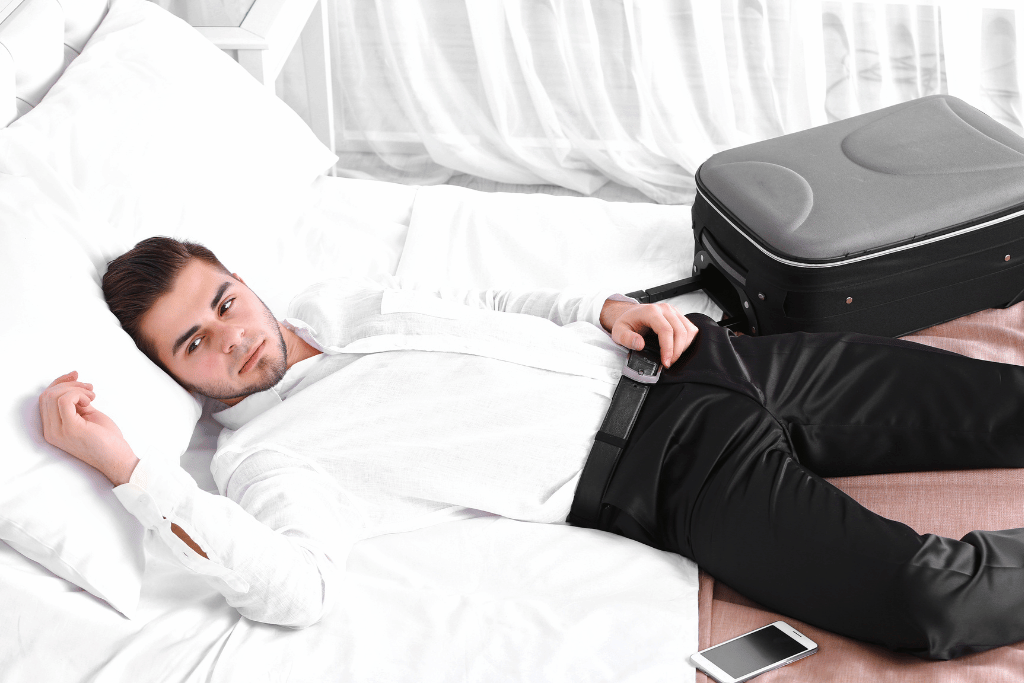Jet lag is a temporary sleep disorder that can occur when you travel across multiple time zones. It is caused by the disruption of your circadian rhythm, which is your body’s natural sleep-wake cycle. Jet lag can cause a variety of symptoms, including fatigue, insomnia, difficulty concentrating, and digestive problems.
While there is no guaranteed way to prevent jet lag, there are a number of things you can do to minimize its effects. Here are a few tips:
1. Adjust your sleep schedule before you travel.
If you are traveling east, start going to bed and waking up 30 minutes earlier each day for a week before your trip. If you are traveling west, start going to bed and waking up 30 minutes later each day for a week before your trip. This will help to gradually adjust your body clock to the new time zone.

2. Stay hydrated.
Dehydration can make jet lag symptoms worse. Be sure to drink plenty of water before, during, and after your flight. Avoid caffeine and alcohol, as these can also dehydrate you.
3. Get some sleep on the plane.
If possible, try to sleep during your flight. This will help to reduce the amount of time you are awake and feeling jet lagged when you arrive at your destination. To make sleeping on the plane easier, wear comfortable clothing, bring a neck pillow and eye mask, and avoid using electronic devices in the hour before bed.
4. Adjust to the local time zone as soon as possible.
Once you arrive at your destination, try to adjust to the local time zone as soon as possible. This means going to bed and waking up at the same time each day, even if you don’t feel tired. It also means eating meals at the local times.
5. Get some sunlight exposure.
Sunlight exposure helps to regulate your circadian rhythm. If you are traveling east, get some sunlight exposure in the morning. If you are traveling west, get some sunlight exposure in the evening.

6. Avoid caffeine and alcohol.
Caffeine and alcohol can interfere with sleep, so it is best to avoid them in the days leading up to your trip and during your flight.
7. Exercise regularly.
Exercise can help to improve sleep quality, but avoid exercising too close to bedtime.
8. Take melatonin.
Melatonin is a hormone that helps to regulate sleep-wake cycles. Taking melatonin supplements before bed can help to reduce jet lag symptoms. However, it is important to talk to your doctor before taking melatonin, especially if you have any underlying health conditions.
Here are some additional tips that may help to reduce jet lag:
- Avoid napping during the day.
- Eat light meals and snacks throughout the day.
- Avoid working late at night.
- Create a relaxing bedtime routine.
What to do if you experience jet lag
If you experience jet lag, there are a few things you can do to help relieve the symptoms:
- Get as much sunlight exposure as possible during the day.
- Avoid caffeine and alcohol.
- Exercise regularly, but avoid exercising too close to bedtime.
- Take melatonin supplements before bed.
- If you are unable to sleep at night, try napping for 20-30 minutes during the day.
Jet lag symptoms usually improve within a few days after you arrive at your destination. However, it may take up to a week for your body to fully adjust to the new time zone.


